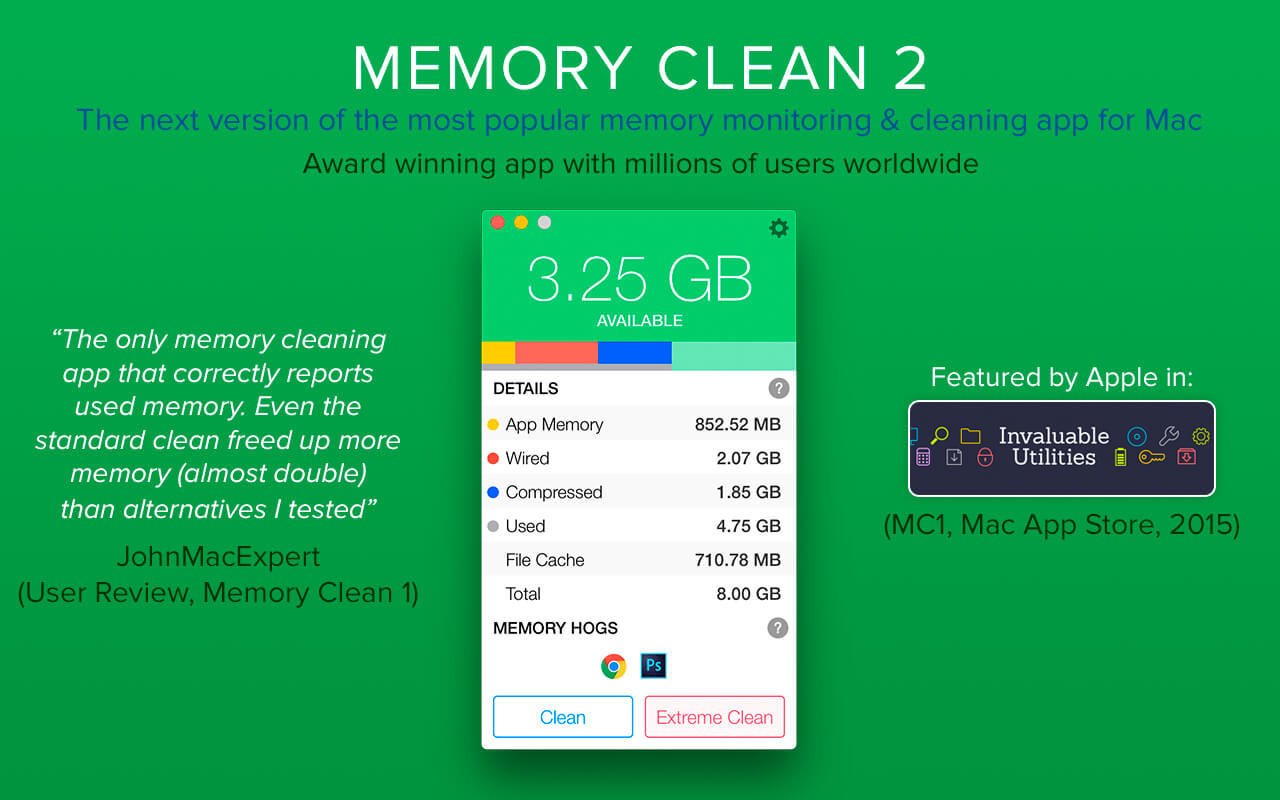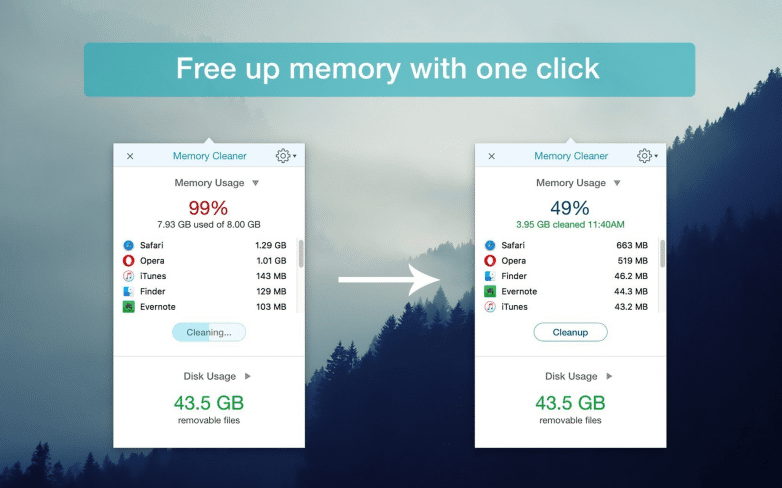

Now we will be creating a shell script to auto clear RAM cache daily at 2 am via a cron scheduler task. Moreover, it will also slow the system for a few seconds while the cache is cleaned and every resource required by OS is loaded again in the disk cache. If we clean the cache, the disk cache will be less useful as the OS will look for the resource on the disk. If it finds the resource in the cache, then the request doesn’t reach the disk. Linux is designed in such a way that it looks into the disk cache before looking onto the disk. You can drop cache as explained above without rebooting the System i.e., no downtime required. When you are applying various settings and want to check, if it is actually implemented specially on the I/O-extensive benchmark, then you may need to clear the buffer cache.
#Memory clean 2 vs memory clean 3 free
Is it a good idea to free Buffer and Cache in Linux that might be used by Linux Kernel? Free Buffer and Cache in Linux

It is not recommended to use the third option above “.echo 3 >” in production until you know what you are doing, as it will clear pagecache, dentries, and inodes.

If you have to clear the disk cache, the first command is safest in enterprise and production as “.echo 1 > ….” will clear the PageCache only. As mentioned in the kernel documentation, writing to drop_cache will clean cache without killing any application/service, command echo is doing the job of writing to file. The shell waits for each command to terminate before executing the next command in the sequence. Command Separated by “ ” run sequentially. Given that and issues surrounding memory usage for some users, it may be best for users still on macOS Big Sur to wait until the second version of macOS Monterey before upgrading.Sync will flush the file system buffer.
#Memory clean 2 vs memory clean 3 update
Just earlier today, we reported on user reports that the macOS Monterey update is bricking some older Mac computers. Mac users on the MacRumors Forums ( 1, 2, 3, 4), the Apple Support Communities ( 1, 2), and Reddit, are noting similar experiences. When examining activity monitor pages seems to be the main culprit using up 18 GB and more! Is this evidence of a memory leak for Pages with Monterey os? Restart makes no difference. This is only occurred since downloading Monterey. Since downloading Monterey I receive repeated messages "your system has run out of application memory".

A user on the Apple Support Communities noted their experience: In some instances, some users have suggested that restarting the Mac helps, while others say the pop-up reappears shortly after. The pop-up is seemingly being shown to users despite minimal use of their Macs with considerable amounts of memory to spare. I've restarted I've ran CleanMyMac x I've tried everything I know to do /TXNuEn3aylĮxcluding Firefox and Control Center related reports, more widespread reporting from users across different platforms suggest the more common bug is the pop-up "Your system has run out of application memory." Other users are also sharing similar experiences on the MacRumors Forums and got any idea what this is about ? m1 Mac mini 8gb safari does it too. Some reports call out the macOS Control Center as the main culprit, with YouTuber Gregory McFadden sharing a screenshot of Control Center using up to 20GB of RAM on their 64GB M1 Max 16-inch MacBook Pro. Reports on Twitter, Reddit, the MacRumors Forums, and the Apple Support Communities consist of users reporting their Mac warning that the system has "run out of application memory" or that specific applications are consuming ridiculously high amounts of RAM in Activity Monitor. It's difficult to pinpoint precisely what models of Mac computers are affected however, the range is relatively wide, including the newly released 14-inch and 16-inch MacBook Pros. Some users who recently upgraded to macOS Monterey are experiencing a bug known as a "memory leak," a scenario in which a specific macOS process or application is bugged out and stays running for prolonged periods in the background, consuming abnormally high amounts of memory or RAM.


 0 kommentar(er)
0 kommentar(er)
